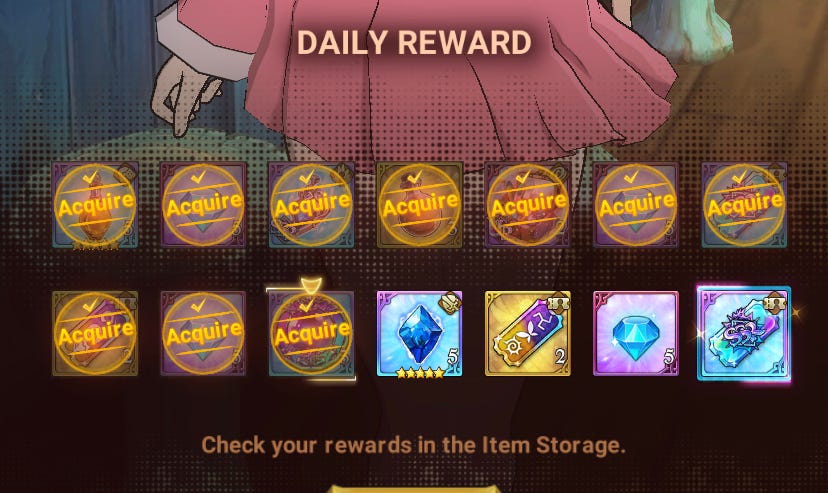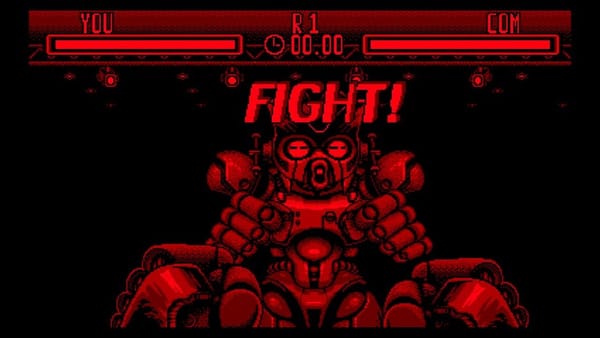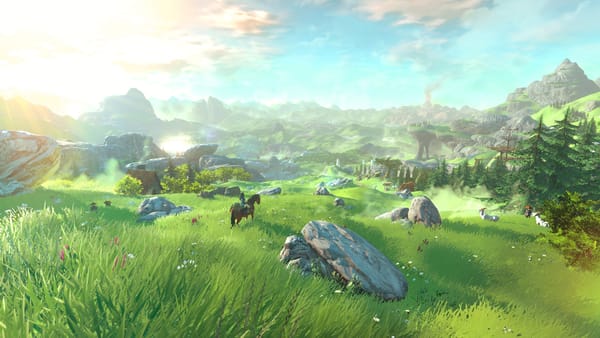#66: Nobody move
The new low-water mark for player retention tactics: actual bullying
The eldest started primary school in September, and one of his recurring homework tasks is a times-tables app, Pixl, that he’s supposed to use three times a week. It is, as you would expect from an educational app in Space Year 2021, gamified from top to bottom: there are leaderboards for individuals and class groups in each year, and a nationwide one ranking the three top-performing schools of the week. Each answered question earns you, or your class or school, a single point; there are no bonuses for difficulty, or for speed.
The kid, bless his cottons, very quickly realised this system could be gamed. Do the one times table — ‘one times one is one, one times two is two’, etc — five times and you’ve got 60 points for yourself, your class and your school, simply for being able to count to 12. I tell him off for this every time he does it, but feel a swell of pride at the same time. He is, despite it all, his father’s son; seeing life through the prism of games, a natural-born min-maxer.
Pixl’s problem is the metric by which it measures success, and how open to exploitation that metric quickly proves to be. This is, of course, a common theme in today’s connected world, and often with far worse consequences than a seven-year-old falling behind a bit in maths. Pageviews as a metric gave us clickbait and SEO; likes and shares gave us memes, brandter and President Donald Trump. What starts as a measure of success for content that already exists eventually becomes the driving factor in how all that content is designed, delivered and interacted with. Something intended to make things better instead makes them worse, and the better people get at exploiting them, the more nefarious those exploitation methods must become. Cheery stuff.
The closest equivalent to this in games, I think, is retention — most commonly measured in daily or monthly active users. On the face of it, this is a noble goal: what better indicator is there of a free-to-play or live-service game’s success than the number of people who are playing it? But developers, first on mobile app stores and then across the entire industry, soon realised the subtle ways in which games could be refashioned to appear far more healthy than they really are.
All they have to do for you to count as an active user is get you to log in. So now games have time-limited events, often with lengthy quests to grind out, and virtual items that, when the event ends, will be gone forever. In-game vendors and item stores rotate their stock daily, compelling you to at least check in and see what’s on offer. And of course there are login rewards, little cheesy dollops of currency or resources doled out to reward the player-rat for hitting their daily lever, the Pixl one-times-table of modern videogame retention methods. One of the newer iterations of this idea has an additional layer of login reward, tied to a time-limited event, offering a highly desirable reward on the final day. Forget to check in one day, and you’re screwed. Clever! Lovely! Great.

Sure, you can think of these things as retention incentives, if you want. But really they’re deterrents to abstention; not about rewarding those who log in every day so much as punishing those who don’t. These tactics are everywhere now, which inevitably means that things are going to have to get worse again, somehow. So, where do we go from here? How do you juice the ol’ active-user reports when you’ve already tried every trick in the book?
Over we go to Ubisoft, which has for some unfathomable reason begun sending emails to players who haven’t played Far Cry 6 for a while, supposedly in the antagonist’s voice, taunting them for their perceived weakness. “It was amusing watching you fail,” reads an email Ubisoft may already regret sending to, among others, gamesindustry.biz managing editor Brendan Sinclair. “Surely you can do better than this,” it adds, before calling out, in huge type, his meagre three-hour playtime.
Gosh, where do we even begin with this? Firstly, if a player drops your big expensive open-world game after three hours, I would suggest that perhaps one ought to look inward, rather than towards the email database, when considering who is to blame. I think negging as a concept has been, by this point, proven not to work all that well, and that a multinational videogame company with an, ahem, chequered recent past perhaps ought to think twice before employing the tactics of an online pick-up artist. I am not sure the ‘chicken?’ tactic has worked on anyone since Back To The Future II came out in 1989. And really, what did Ubisoft think was going to happen here? ‘Sorry gang, I can’t play Warzone with you all tonight. Far Cry just called me a sissy and I simply have to prove it wrong’?
The last time I checked, the job of a videogame marketing division was to make players excited about a game. Not to shame them into playing something that the data suggests they do not like all that much. In any case, this is a singleplayer game! You measure success in sales figures, not playtime, surely? You already have the sale. If a player wants to drop the game, go off and play something else and come back later, who cares? If they never come back, does it really matter? Besides, this game only came out three weeks ago! People are busy! Leave them the fuck alone, and let them decide when they play your game, and if they want to play it at all.
Anyway, I’ve ranted quite enough. The eldest is home for his half-term break this week, and I need to supervise his homework. The last thing I need right now is a nasty email from a times-tables app, shame-goading him into reclaiming top spot on the leaderboard. That’s my job, thank you very much, and I take it very seriously.
MORE!
- Some brief follow-up on those missed Game Pass targets from last week. Microsoft’s gaming division remains in fine fettle: revenue from hardware sales is up over 160%, and up 16% across the business. Good.
- Blizzard has confirmed the cancellation of next year’s Blizzcon event. A decision I think we can all agree is the right call, given *waves hands*.
- Microsoft has finally shown off Halo Infinite’s campaign. I winced a bit at the first sight of its Ubi-style open-worldisms, but as the trailer progressed I began to realise what a good fit it is for Halo’s sandbox, and by the end I was thoroughly excited for it. The series has always been a bit of a blind spot for me — I’ve played a few over the years, but never really paid attention to any of them. Reckon I’ve got time to blitz through all the campaigns by the time Infinite arrives? Let’s find out.
- Google has announced a raft of changes to the revenue share on its Play store to better favour developers. The blog post announcing the move does a good, if rather transparent, job of making it all sound like something Google wants to do, rather than being designed to avoid a judge ordering them to do something that would hurt even more.
- Google again! You may remember that when it unveiled Stadia in March 2019, it had a number of unique, eye-catching features. You could embed your game save into a screenshot and share it with others; viewers of a YouTube livestream could jump right into the streamer’s multiplayer lobby at the click of a mouse. Well, two-and-a-half years later and almost nine months after it shut down its game development division, those features are at last beginning to come online. Excellent news for the 14 people still using it.
- When reports of a big Returnal update emerged a couple of weeks back, a friend and I started daydreaming of what form it might take. We may have got slightly ahead of ourselves. It arrived yesterday, adding a one-time save-state feature that should have been in from the start, and a photo mode. Version 2.0, they’re calling it. Righto.
- The latest casualty of the global semiconductor shortage is the Raspberry Pi, which has just seen its first ever price increase. The Raspberry Pi Foundation insists this is only temporary, and plans to revert the increase when supply chains return to normal. That is a way off, however: Intel CEO Pat Gelsinger reckons it’ll be 2023 before we see “supply-demand balance”.
- It has emerged that the newly added suite of N64 games to Nintendo Switch Online service aren’t just overpriced, but also rubbish.
- Niantic’s Pikmin Bloom launches in Australia and Singapore today, and elsewhere around the world in the coming days. As a man who walks a dog I am quite up for this, I must say.
- Staff at Epic Games are cross after their employer announced the end of a pandemic-era policy that gave employees every other Friday off. Epic says it was only ever intended to be temporary, but the last time I checked the pandemic was still very much in effect, so… yeah, not a great look, this.
- A trans developer who worked on Eidos Montreal’s Guardians Of The Galaxy, but left a year before ship, brings word that she not only appears in the game’s credits, but is listed under her new name. One of those things you wish wasn’t so rare as to count as news, but refreshing to see nonetheless.
- Some videogames have very good names.
There we go! Apologies for the lack of an update on Monday. Sometimes the heart just isn’t in it, the brain lacks for inspiration and the fingers have lost their magic, and when that number of body parts are rebelling it’s probably best to admit defeat.
Welcome once again to yet another influx of new signups, thanks this time to The Guardian tech editor and Hit Points pal Alex Hern saying nice things about it to his legion of followers. If you’ve read this far, enjoy Hit Points and also have a sizeable following — I know some of you do, actually! I just try not to make a thing about it! — perhaps you’d consider following Alex’s lead, and giving it a wee share. Have a grand couple of days, and I’ll see you, heart, brain and fingers permitting, on Friday.





